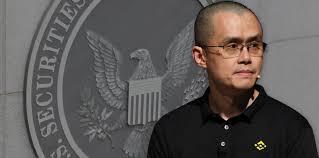The most stringent regulation in the history of digital currency? Sorry, there may be misunderstandings
Recently, Bloomberg News, a "FATF will issue a note on June 21 to clarify how participating countries should supervise the digital asset sector" has attracted widespread attention in China. There are even domestic media claims that “the largest scale of strict regulation in history is coming”. Is this really true?
Who is FATF?
FATF is the abbreviation of Financial Action Task Force on Money Laundering. It is the “international organization of the G7”, which was established in Paris in 1989 for the purpose of studying the dangers of money laundering, preventing money laundering and coordinating anti-money laundering. It is the most influential international anti-money laundering in the world. And one of the most authoritative international organizations in the field of counter-terrorism financing. Its 40 anti-money laundering proposals and counter-terrorism financing nine special recommendations (referred to as FATF 40+9 recommendations) are the world's most anti-money laundering and counter-terrorism financing. Authoritative document."
The FATF currently has 38 member states (or organizations) and 2 observer countries including China, the United States, Japan, Russia, and the European Union , as well as 9 associate member organizations and 28 observer organizations throughout the world.
Why does the FATF do this?
In fact, as early as 2014, the FATF issued a report on “Virtual Currency: Key Definitions and Potential Anti-Money Laundering (AML)/Anti-Terrorism Financing (CFT) Risks”.
- How to solve problems in Bitcoin and Ethereum programming models
- "618" shopping festival e-commerce giants trick play blockchain experts said that relying on "chain" to solve commodity security "a little difficult"
- 5G+ blockchain, is it a gimmick, or is it possible in the future?
In this 15-page report, the FATF assessed the potential risks of virtual currency in anti-money laundering/counter-terrorism financing: (1) the anonymity provided by virtual currency transactions on the Internet; and (2) the limited identification and verification of participants; 3) The compliance responsibilities of anti-money laundering/counter-terrorism financing, the lack of clarity in the responsibility for monitoring and executing these transactions, the transactions are subdivided into several countries; and (4) the lack of central oversight bodies.
At the same time, the FATF cited the case of money laundering in virtual currency by Liberty Reserve, Silk Road, and Western Express International to illustrate the need for enforcement action.
By July 2018, at the meeting of G20 finance ministers and central bank governors in Buenos Aires, people realized the real and growing risk of money laundering and terrorist financing in crypto assets, and realized the need Take urgent action to address these risks. Therefore, the G20 called on the FATF to take further action to combat proliferation financing and asked the FATF to explain in October 2018 how its standards would be used for the regulation of crypto assets, and emphasized the individual and collective G20 countries that fully and effectively implement the FATF standards. Promise of.
At the same time, the FATF recognizes that “it is necessary to urgently explain how the FATF standard is used for virtual money providers and related businesses, including customer due diligence, fund transfer, supervision and enforcement ” and decided to update the instructions in October 2018.
As a result, the FATF revised the “Recommendation 15” (“New Technology” section) published in the 2012 FATF Recommendations in October 2018 to clarify how the FATF standard applies to activities or operations involving virtual assets. In the revision, FATF added definitions of “virtual assets” and “virtual asset service providers” to clarify how AML / CFT requirements apply to virtual assets.
In February 2019, the FATF issued the "Public Statement – Mitigating the Risk of Virtual Assets", working to better explain and clarify "Recommendation 15", and prepare for the draft to be officially adopted in June 2019. In this statement, the FATF's proposed changes include: (1) countries regard virtual assets as “property”, “revenue”, “funds”, or other “corresponding values”; and note the virtual asset service provider (VASP) Possible risk of money laundering and terrorist financing ; (2) States should require VASP to obtain permission or registration, but do not require separately registered licenses; (3) States should ensure that VASP is adequately supervised or supervised by AML / CFT For example, VASP acquires and maintains the required sponsor information and beneficiary information required for virtual asset transfers to provide information when needed by the authorities; VASP maintains transaction records and provides data to relevant agencies when needed; The VASP is specified for the CDD's temporary transaction limit at $1,000/euro; and so on.
In early June of this year, in the G20 finance ministers and central bank meeting held in Japan, the G20 group reiterated that it should be consistent with the FATF's AML standard and combat the CTF.
Therefore, with the FATF's promised June final draft time, the FATF has recently confirmed the time to publish the “description”.

Does the FATF have the right to directly “regulate”?
However, it should be noted that the FATF has stated on its official website:
“The FATF is a working group composed of member governments, not a formal international organization. Only member states can agree to temporarily provide specific goals and projects (“authorization”) for the FATF, and the FATF cannot be associated with any relevant association. Certificate or work to make any suggestions. "
Therefore, what the FATF can provide is only “description”, and there is no guarantee of the implementation of this “description”, nor does it have the right to “regulate” any encryption company or project directly.
So, who is responsible for “regulation”?
PANews found this paragraph on the FATF's official website:
“The FATF is an international decision-making body, not a law enforcement agency. Therefore, it does not play a role in law enforcement matters, investigations or prosecutions. If someone finds a case that may be related to money laundering, then you need to go to the financial intelligence department of your country. (For example, FinCEN in the United States, NCA in the United Kingdom, Tracfin in France). "
That is to say, in the matter of "whether or not to implement supervision according to the description of the FATF", it is the responsibility of the financial intelligence departments of various countries . This means that joint supervision seems to be severe, but the actual effectiveness and enforcement of law enforcement remains to be tested .
In fact, for the supervision of the encryption industry, the various regulatory agencies in various countries are not uniform. For example, in the United States, there are financial industry regulatory agencies (FINRA), financial crime enforcement networks (FinCEN), and state regulators . As happened at the G20 meeting in Japan in early June: In addition to the FATF, the G20 also called on the Financial Stability Board (FSB) and “other standards bodies to monitor risk and consider additional multilateral responses as needed.”
Whether they can be consistent in the implementation of regulations remains to be discussed, not to mention the response of different countries in their own interests.
Concerns about compliance costs and technical difficulties
However, as Jesse Spiro, head of policy at blockchain analysis firm Chainalysis, is concerned: a country that has been blacklisted because it does not comply with FATF regulations “basically loses access to the global financial system” . Therefore, people in the encryption industry, especially those who are more closely related to “money laundering”, such as exchanges, wallet service providers, custodians and encrypted hedge funds, are still cautious about the upcoming “description” of the FATF. .
As early as April of this year, Chainalysis commented on the February draft of the FATF. Although Chainalysis acknowledges that VASP should collect and maintain KYC information, they believe that the exchange cannot send KYC information to the beneficiary at the time of the transaction because some beneficiaries do not have the required infrastructure; and it is currently not possible to determine that the beneficiary is Use VASP or their own personal wallet. At the same time, Chainalysis recommends using a surveillance system to scan for illegal activities and customer due diligence. It also recommends that the FATF does not require everyone to be registered or licensed, as this requirement applies only to traditional businesses .
In June, Bloomberg also reported concerns from the research director of the encryption research organization Messari Inc. "The FATF's recommendations may be much greater than the impact of the US SEC or any other regulatory agency to date."
John Roth, chief compliance and ethics officer at Bittrex, a cryptocurrency exchange, and Mary Beth Buchanan, general counsel at Kraken, are concerned that this will lead to higher compliance costs. Roth and Buchanan also expressed doubts about the difficulty of implementing the technical aspects of compliance.
In contrast, Phil Liu, the chief legal officer of hedge fund Arca, is slightly more optimistic: some violating companies may close down, but "compliant players will not suffer too much interference . "
Of course, regardless of the response of cryptographers, with the rapid development of the encryption industry, regulation and compliance are bound to come.
We will continue to update Blocking; if you have any questions or suggestions, please contact us!
Was this article helpful?
93 out of 132 found this helpful
Related articles
- Media: Is Bitcoin "wake up"?
- TS Run Road Funds Guardian Action: Graphic Tracking Asset Transfer Money Laundering (continuous update)
- Buckle attack, the infernal of the mine pool
- Market Analysis: Bitcoin broke through the $8,000 mark, and the market sent out again
- The exchange was attacked on the line and was only attacked by John McAfee.
- Lightning Network helps mobile communications, how to send decentralized text messages?
- Is Bitfinex's platform coin LEO more valuable than BNB?






